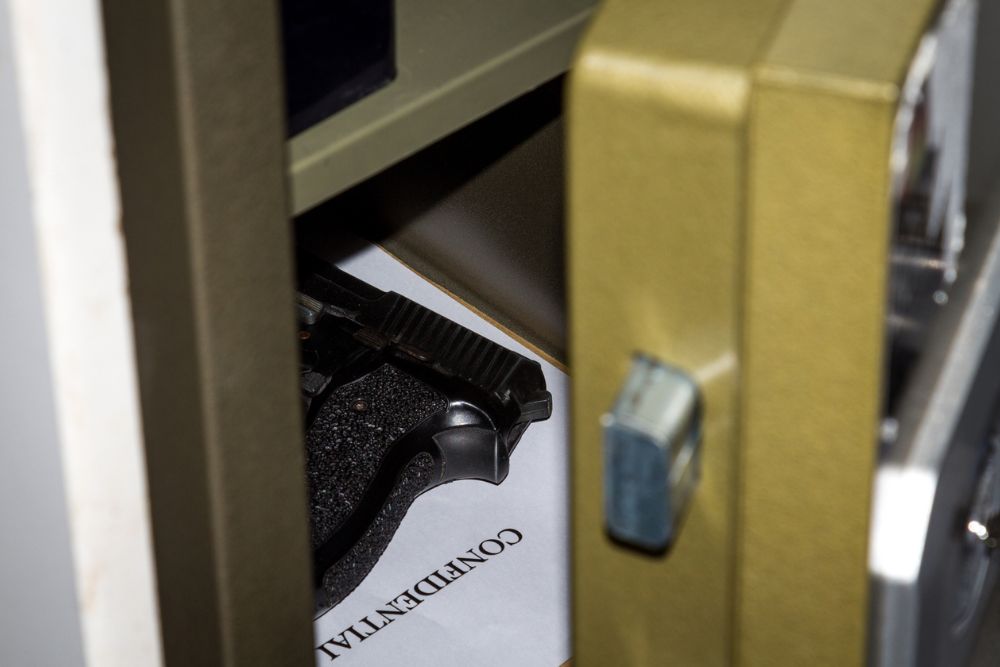Suicide is an uncomfortable topic for most people. It’s distressing to consider the possibility that someone you love might kill themselves. The best way to prevent suicide is to talk about it, so it’s a good idea to work through your discomfort by educating yourself about suicide prevention. At The Pavilion, in Williamsburg, Virginia, we help people who are struggling with suicidal thoughts to stay safe, and we want to give you the tools to recognize when someone in your life may be struggling with suicidal ideation.
Warning Signs of Suicidal Thoughts
Often, after a person dies by suicide, the survivors will say that they did not see any warning signs. While it might be true that the friends and family members who have been left behind did not realize that the person who died was suicidal, there typically are red flags. Recognizing these for what they are could help you to save the life of someone you know.
- Personal or family history of suicide attempts
- Making references to revenge, suicide, or dying, either verbally, on social media, in writing, or through jokes
- Struggling with painful feelings such as sadness, hopelessness, helplessness, worthlessness, anger, or resentment
- Changes in behavior such as increased aggression, acting impulsively or recklessly, increased use of alcohol or other substances
- Experiencing loneliness or isolation, potentially as a result of withdrawing from family, friends, classmates, and colleagues
- Feeling like their life serves no purpose
- Having no sense of direction for their life
- Struggling to accept or receive help due to stigma, geographic location, lack of insurance, finances, and fear that they won’t be taken seriously, or distrust of mental health professionals
- Access to a method they could use to kill themselves
- Recent, difficult life circumstances such as loss of a loved one, divorce, unemployment, money problems, or declining health
What To Do if You Suspect Someone Is Suicidal
In the past, it was believed that talking about suicide would encourage someone who was not considering killing themselves to do so. This is no longer considered true. If you have reason to believe that someone you know is suicidal, the most important thing you can do is take the risk seriously and talk to them. This may help them to realize that someone cares about them and is willing to help.
If you’re not sure what to say, you might consider starting with what you’ve noticed and that you are concerned that they might be considering suicide.
- “I know you’re going through a lot right now. Losing a job/going through a divorce/losing a loved one is really difficult.”
- “I am worried about you. Are you okay?”
- “You have made some jokes about killing yourself, and I am concerned that you could be thinking about taking your life. Have you been considering suicide?”
- “Do you have a plan for how you would end your life?”
- “Do you have access to the things you would use to kill yourself?”
- “Will you work with me to make a plan to stay safe?”
Facts About Guns and Suicide
When we think about gun deaths, many people think of homicides, but guns are far more commonly used in suicides. For example:
- Half of all suicides are completed with a firearm.
- Guns are the most lethal way a person can attempt suicide, meaning that if a person tries any other way to kill themselves, they are less likely to die than if they use a firearm.
- Most of the people who attempt suicide with guns are men, which is why their rate of completed suicides is higher than women, even though women attempt suicide more often.
- Young people are at particularly high risk of killing themselves with a gun because they tend to be more impulsive and unable to recognize that their present concerns will likely resolve over time.
- It’s especially important to ask people who could be suicidal if they have access to firearms and to learn how to protect suicidal people from guns.
- Even if someone has not been a gun enthusiast in the past, suicidal people sometimes act in ways that are out of character for them normally.
- If someone shares that they are suicidal and that they have access to a gun, even if they don’t plan to use the gun, it is wise to take steps that will reduce or eliminate their ability to access it until they are no longer suicidal.
How to Reduce Access to Guns
There are several ways to eliminate or reduce a person’s access to firearms.
- Selling or donating the gun(s) in question is the most certain way to ensure that a suicidal person cannot hurt themselves with the weapons.
- Finding somewhere else for the gun(s) and ammunition to be stored is the next safest option, if the guns cannot be sold. Places could include a gun range, local police department, or with a trusted family member or friend who can safely secure the weapon(s)
- If the gun cannot be stored outside the home, disassembling the essential components and locking them away from each other and the ammunition, using a cable lock or a lock box or gun safe with a combination, fingerprint lock, or other biometric device may increase the amount of time it would take the person to gather each of the pieces, providing time for them to change their mind and receive help instead.
Getting Help
Once the means a person could use to hurt themselves are secure, it’s time to get them help. This could look different for every person, but might include contacting any or all of the following:
- Their therapist or medication manager
- Their family doctor
- Their spiritual leader
- Their 12-step sponsor
- Trusted family and friends
- The National Suicide and Crisis Lifeline
Never leave a suicidal person alone. If the person is suicidal and they refuse to create a plan that will keep them safe, take them to the nearest emergency room or call 911.
At The Pavilion, we treat adults of all ages who are experiencing severe symptoms of mental illness or emotional distress. We offer inpatient and outpatient mental health treatment and detox services.





